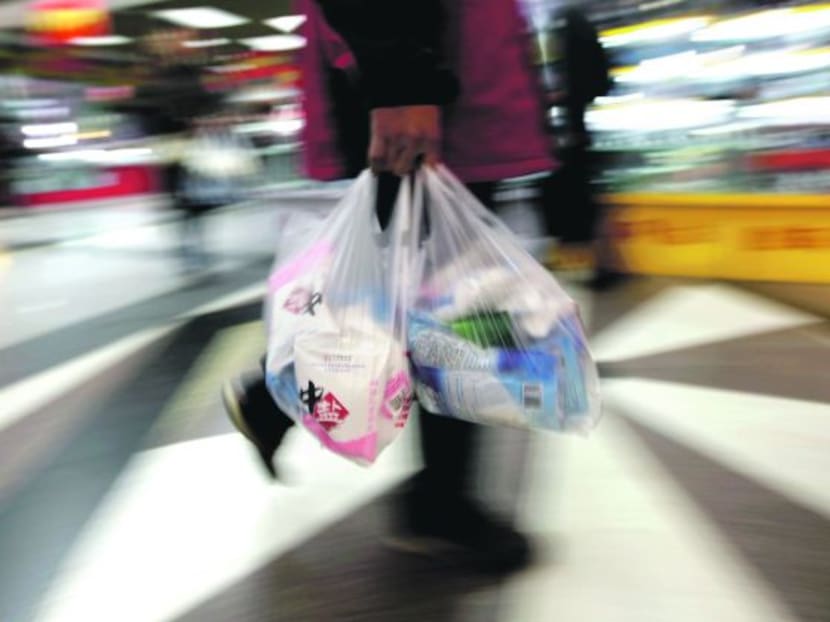Paying for plastic bags when shopping: Consumers should adapt intuitively
It was reported that out of 822,200 tonnes of plastic waste generated here last year, only 7 per cent of it was recycled (“Shops offer discounts, free food, when you use your own bag, container”; Sept 1).
It was reported that out of 822,200 tonnes of plastic waste generated here last year, only 7 per cent of it was recycled (“Shops offer discounts, free food, when you use your own bag, container”; Sept 1).
With the ongoing discussions about the use of plastic bags at retail outlets, and how supermarket chains are reportedly in talks to charge a fee for them, I would like to recount my experience from a recent student exchange programme in Germany.
It was interesting to observe how my friends and I responded to having to pay for plastic bags at shops.
Most of us, who would have otherwise used the (free) plastic bags for our groceries in Singapore, started stuffing our buys in our bags, carrying them in our hands, or taking along our reusable bags for grocery shopping.
Whether it was to save cost or the environment, it was easy and intuitive to adapt to the fee levied.
Much of what has been debated here has also centred on the use of plastic bags from supermarkets to hold trash.
While we were in Germany, we would buy trash bags, sold in bulk, to collect our rubbish, and our plastic bag consumption was kept to the bare minimal — strictly for trash.
This would hopefully be the behavioural change in Singaporeans should they have to pay for plastic bags when shopping.
Still on the frivolous provision of single-use plastic bags in the retail and food-and-beverage sectors, which are not meant to be used for trash, we can look to the example in the European Union (EU).
The EU Plastic Bags Directive and its adoption by member states has yielded significantly positive results that should prove worthy of influencing Singapore’s policies.
Since the introduction of the levy in 2002, the consumption of single-use plastic bags fell by 95 per cent from 328 to 18 per person per year in Ireland, for example.
Germany, France and Italy voluntarily decided to ban plastic bags in supermarkets and the retail sector, apart from bags that are biodegradable and compostable.
It is worth noting that in Singapore, it is rare for consumers to compost their waste, and biodegradable plastic still adds to our landfill.
EU’s success makes a compelling reason for us to rise to the occasion.










